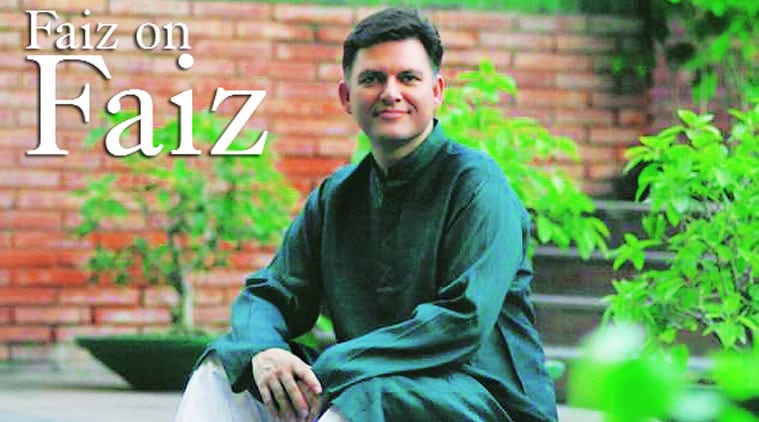Faiz on Faiz
Faiz Ahmed Faiz’s grandson, Ali Madeeh Hashmi, talks about his grandfather’s legacy and the upcoming biography of the revolutionary poet.
 A full-time psychiatrist and part-time writer, Ali wrote the biography because he found none that were comprehensive enough on Faiz.
A full-time psychiatrist and part-time writer, Ali wrote the biography because he found none that were comprehensive enough on Faiz.
Like most 10 year olds, Ali Madeeh Hashmi (pictured) didn’t spend a lot of time with his grandfather. There weren’t any night story sessions or discussions over school and homework. It wasn’t as if he wasn’t a conventional doting grandfather. “But he was either travelling or his Model Town house in Lahore would be full of admirers, local poets and his fans. So it wasn’t as if I could ever spend any alone time with him. But I also knew that this came from being born as Faiz Ahmed Faiz’s grandson,” says 45-year-old Ali, over the phone from Lahore.
But, in the early ’80s, when Ali was growing up, the oppressive regime of Zia-ul-Haq had banned Faiz and his revolutionary poetry in Pakistan along with a host of martial laws that banished the arts in general. Faiz was still penning lines such as Sab taaj uchhale jayenge, sab takht giraaye jayenge, hum dekhenge. “It wasn’t a great time to be a part of the Faiz family,” says Ali, “The public scrutiny on his life was intrusive and offensive. We (my sister and I) would be quite scared in school. Someone could just easily come and beat us up,” says Ali, whose short biographical sketch The Way It Was Once Faiz Ahmed Faiz: His Life and Poems (HarperCollins, Rs 499), found resonance across the subcontinent. Ali will be in the Capital over the weekend for Jashn-e-Rekhta, an Urdu Festival being organised by Rekhta Foundation.
A full-time psychiatrist and part-time writer, Ali wrote the biography because he found none that were comprehensive enough on Faiz. His stories came from oral archives — his mother Moneesa Hashmi and his aunt Saleema Hashmi. The book also has Faiz’s poems translated by the poet’s son-in-law Shoaib Hashmi.
In the book, Ali presents the poet as a person, who drank and smoked and had fun with his family, and not the imposing figure he was known as. However, he doesn’t ignore the brilliance of Faiz’s poetry, and the social context in which it was written. “It was important to demystify him. As years pass, the myths thicken and the legends grow. People sort of forget the regularity of a person. Of course he was great but he was also a human being and that’s the approach I wanted to take. I don’t think saying that detracts from his larger-than-life image,” says Ali, whose extensive biography on Faiz, published by Rupa, will expound on the aspects people don’t really know about.
Besides prison letters by Faiz from 1951 to 1955 (for his role in the Soviet-backed coup attempt against PM Liaquat Ali Khan), Ali will talk about Faiz’s religious ideas in his new book. Religion is not what a lot of people associate with the left-wing communist and atheist writer who wrote about ordinary people, oppression, farmers and mill workers, a far cry from the love poetry of the early 20th century. “Like in all conventional Muslim households, he also went to the maulvi and studied the Quran and did his Masters in Arabic, which he used in his poetry. Yes, he was a humanist and considered religion as more of a distraction but he was profoundly affected by Sufi teachings of Islam,” says Ali, who claims to know his grandfather much better now. “When he died in 1984, I was 16, a self-engrossed teenager and I did not bother much. I bothered later and it’s been quite a journey,” says Ali.
The festival is at India International Centre on till March 15. Entry is free. For details, visit:www. jashnerekhta.org
- 01
- 02
- 03
- 04
- 05



























